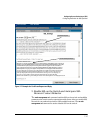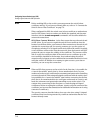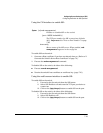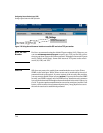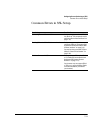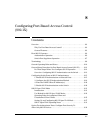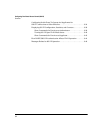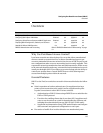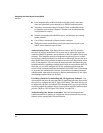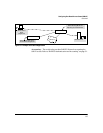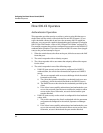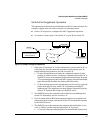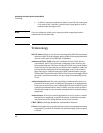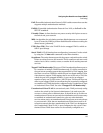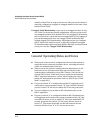
8-3
Configuring Port-Based Access Control (802.1X)
Overview
Overview
Why Use Port-Based Access Control?
Local area networks are often deployed in a way that allows unauthorized
clients to attach to network devices, or allows unauthorized users to get
access to unattended clients on a network. Also, the use of DHCP services and
zero configuration make access to networking services easily available. This
exposes the network to unauthorized use and malicious attacks. While access
to the network should be made easy, uncontrolled and unauthorized access is
usually not desirable. 802.1X provides access control along with the ability to
control user profiles from a central RADIUS server while allowing users
access from multiple points within the network.
General Features
802.1X on the ProCurve switches covered in this manual includes the follow-
ing:
■ Switch operation as both an authenticator (for supplicants having a
point-to-point connection to the switch) and as a supplicant for point-
to-point connections to other 802.1X-aware switches.
• Authentication of 802.1X clients using a RADIUS server and either the
EAP or CHAP protocol.
• Provision for enabling clients that do not have 802.1 supplicant soft-
ware to use the switch as a path for downloading the software and
initiating the authentication process (802.1X Open VLAN mode).
• Supplicant implementation using CHAP authentication and indepen-
dent username and password configuration on each port.
■ Prevention of traffic flow in either direction on unauthorized ports.
Feature Default Menu CLI Web
Configuring Switch Ports as 802.1X Authenticators Disabled n/a page 8-15 n/a
Configuring 802.1X Open VLAN Mode Disabled n/a page 8-21 n/a
Configuring Switch Ports to Operate as 802.1X Supplicants Disabled n/a page 8-34 n/a
Displaying 802.1X Configuration, Statistics, and Counters n/a n/a page 8-38 n/a
How 802.1X Affects VLAN Operation n/a n/a page 8-44 n/a
RADIUS Authentication and Accounting Refer to “RADIUS Authentication and Accounting” on page
5-1



